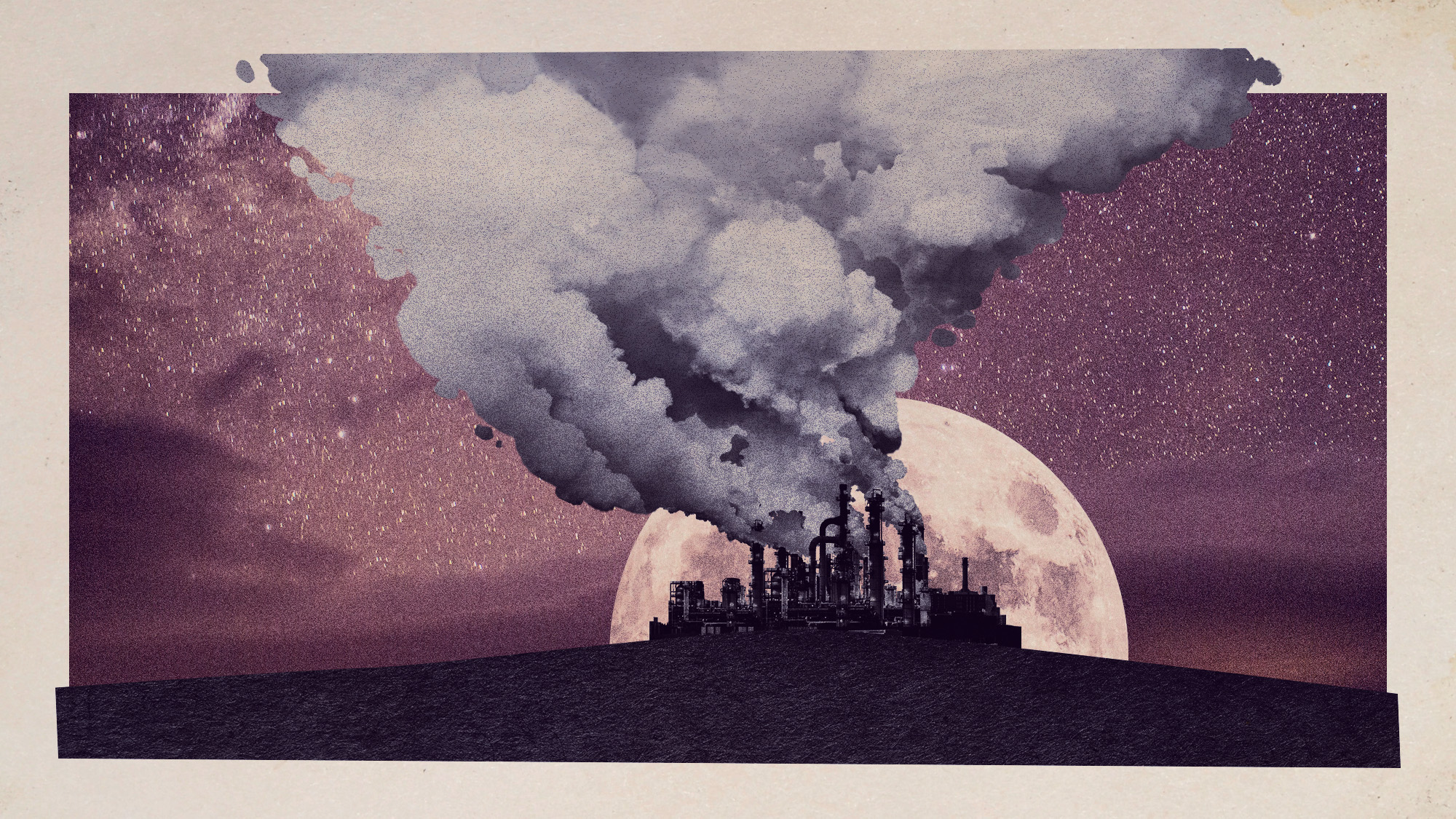Chile's stargazing 'dark skies' are under threat
New chemical plant could spoil celebrated astronomical stronghold

A free daily email with the biggest news stories of the day – and the best features from TheWeek.com
You are now subscribed
Your newsletter sign-up was successful
A massive chemical plant is causing a "celestial crisis" in Chile's stargazing stronghold, said Reuters.
Experts are warning that the South American nation's "pristine" dark desert skies, which are "world-renowned" for astronomy, are in danger from the march of urban and industrial development.
'Perfect darkness'
Chile's Atacama desert is the driest non-polar region on Earth, where "the sky shines when the sun sets", said The Guardian. Comets "burn brightly" and "flawless trails of stars" and nebulae "streak the night sky".
The Week
Escape your echo chamber. Get the facts behind the news, plus analysis from multiple perspectives.

Sign up for The Week's Free Newsletters
From our morning news briefing to a weekly Good News Newsletter, get the best of The Week delivered directly to your inbox.
From our morning news briefing to a weekly Good News Newsletter, get the best of The Week delivered directly to your inbox.
The darkness is "so complete" that Indigenous people have "contemplated the dark spots" in between the stars, tracing the forms of animals and ancestors in the "perfect darkness".
Those dark, clear skies have "propelled" Chile to become the world's "astronomical powerhouse", but starwatchers have warned that this status is "under immediate threat".
The "observational prowess" of the Cerro Paranal, the darkest observatory site in the world, "might soon be history", said Sky and Telescope, thanks to the threat of light pollution from a proposed industrial "megaproject".
The energy company, AES Andes, has released plans for Chile's first industrial-scale processing plant - the Inna project. The project would aim to generate "green" hydrogen and ammonia from sea water, using solar and wind energy inland in the Atacama.
A free daily email with the biggest news stories of the day – and the best features from TheWeek.com
The 3,000-hectare facility, which would feed excess energy into the national grid, would be just 11.6km from vital sky observatories. It would need to be illuminated at night for safety and "even the dust kicked up" during construction and the "atmospheric turbulence" of planned wind turbines "worry scientists", said The Guardian, so the "astronomical community" is "unequivocal" in its opposition.
'Coexistence is possible'
AES told Reuters that its own studies found that the maximum increase in the natural brightness of the sky because of the project would not exceed 0.27% on Paranal Hill and 0.09% on Armazones Hill, two key locations for stargazers.
The company insisted that project is in a location the government has earmarked for renewable energy and environmental requirements, so there's "no possibility of relocating" it.
Instead, the project can "work with the world and Chile's astronomy community", to prove that, "with new technology and cultural shifts" to "protect" Chile's dark skies, "coexistence is possible", said a spokesperson.
Chile's science minister, Aisen Etcheverry, said astronomy and energy are "both are important" to ministers, who are "working to find solutions" that "allow both these activities to happen".
Chas Newkey-Burden has been part of The Week Digital team for more than a decade and a journalist for 25 years, starting out on the irreverent football weekly 90 Minutes, before moving to lifestyle magazines Loaded and Attitude. He was a columnist for The Big Issue and landed a world exclusive with David Beckham that became the weekly magazine’s bestselling issue. He now writes regularly for The Guardian, The Telegraph, The Independent, Metro, FourFourTwo and the i new site. He is also the author of a number of non-fiction books.
-
 How the FCC’s ‘equal time’ rule works
How the FCC’s ‘equal time’ rule worksIn the Spotlight The law is at the heart of the Colbert-CBS conflict
-
 What is the endgame in the DHS shutdown?
What is the endgame in the DHS shutdown?Today’s Big Question Democrats want to rein in ICE’s immigration crackdown
-
 ‘Poor time management isn’t just an inconvenience’
‘Poor time management isn’t just an inconvenience’Instant Opinion Opinion, comment and editorials of the day
-
 Nasa’s new dark matter map
Nasa’s new dark matter mapUnder the Radar High-resolution images may help scientists understand the ‘gravitational scaffolding into which everything else falls and is built into galaxies’
-
 Moon dust has earthly elements thanks to a magnetic bridge
Moon dust has earthly elements thanks to a magnetic bridgeUnder the radar The substances could help supply a lunar base
-
 How Mars influences Earth’s climate
How Mars influences Earth’s climateThe explainer A pull in the right direction
-
 The ‘eclipse of the century’ is coming in 2027
The ‘eclipse of the century’ is coming in 2027Under the radar It will last for over 6 minutes
-
 NASA discovered ‘resilient’ microbes in its cleanrooms
NASA discovered ‘resilient’ microbes in its cleanroomsUnder the radar The bacteria could contaminate space
-
 Artemis II: back to the Moon
Artemis II: back to the MoonThe Explainer Four astronauts will soon be blasting off into deep space – the first to do so in half a century
-
 The mysterious origin of a lemon-shaped exoplanet
The mysterious origin of a lemon-shaped exoplanetUnder the radar It may be made from a former star
-
 The 5 biggest astronomy stories of 2025
The 5 biggest astronomy stories of 2025In the spotlight From moons, to comets, to pop stars in orbit